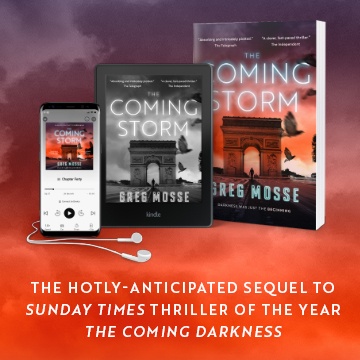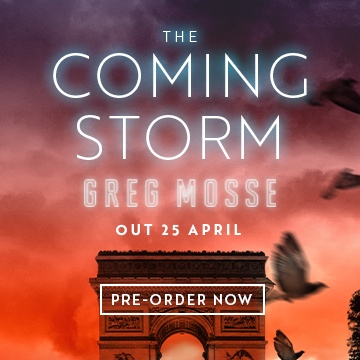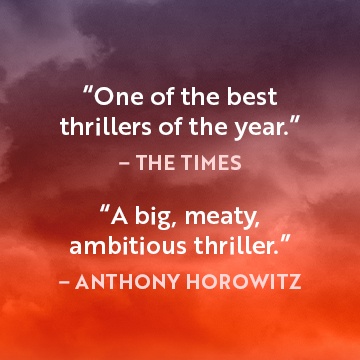
Len Deighton’s first spy novel, released in 1962 at height of the Cold War, has largely slid away from the crime-reading public’s eye. Published at around the time of the Cuban Missile Crisis, The Ipcress File details the mutual paranoia and distrust that characterised relations between the west and Russia. Told through the eyes of an unnamed employee in the war office, a kind of everyman-turned-spy, the is credited with revolutionising the genre of espionage fiction.
As well as not naming his narrator, Deighton also gives few clues as to the time period of the novel – sometime in the 1950s is the best I can guess from those clues that are given. The mystery gives a sinister air of secrecy to discussions of the creation and testing of nuclear weapons. This discussion occurs in great detail as the novel’s setting shifts from the Tokwe Atoll, a fictitious Pacific Island which, like the real-life Bikini Atoll, is the site for US nuclear tests. Unusually for a popular thriller, The Ipcress File uses extensive footnotes and endnotes to probe deeper into the background of the events being retold. These endnotes, like the narrator, are often humorous and go off on tangents, but give this book a sense of complexity and truth greater than any other spy thrillers of the same era.
Despite being overshadowed by the action juggernaut of Ian Fleming’s James Bond series and the complicated, corrupt world of John le Carré’s George Smiley novels, Deighton’s novels are nevertheless a complex and gripping picture of international relations in the early postwar years. As the narrator retells the recent ‘IPCRESS affair’, we get an eerie sense that this really could be a secret government file. It makes reading The Ipcress File a perplexing experience, I felt many times on first reading that I was not being given all of the information, and further reading and research only confirmed this suspicion. Besides the narrator’s name and the exact time in which the novel is set, the full name of the department the narrator works for is never stated. I did some research online to find what WOOC(P) means, and it seems that not even the author himself knows!
Unlike John le Carré and Ian Fleming, Len Deighton had no experience working in espionage before he started writing. He worked as an illustrator while writing his early novels, yet the experience he bought to his writing was chiefly from his time as an air steward with BOAC – the British Overseas Airways Corporation – flying to both the near and Far East, where long layovers allowed him to experience cities such as Beirut, one of the key settings in The Ipcress File but a setting which would have been largely unknown to most readers in the early 1960s.

On the big screen
Three of Deighton’s early thrillers – The Ipcress File, Funeral in Berlin and Billion Dollar Brain – were made into movies starring Michael Caine, and it’s these films that made the actor famous. Caine was a struggling actor when he took the role of Harry Palmer, Deighton’s previously unnamed hero. The Ipcress film never makes it out of London, possibly because the wide ranges of settings would have made filming on location prohibitively expensive. This put it in stark contrast to the already popular James Bond films, despite the fact that producer Harry Saltzman was responsible for the three films based on Len Deighton’s work, as well as many of the early Bond pictures. Viewing The Ipcress File, Funeral in Berlin and Billion Dollar Brain gives not only a sense of Saltzman’s depth as a producer, but also the breadth of what is possible with in the espionage novel, and how unique Deighton’s work was at the time.

Powerful cover design
Deighton’s novels have always been known for their distinctive covers, designed on original publication by Ray Hawkey. Before designing the cover for the first edition of The Ipcress File, Hawkey was design director for The Daily Express and later The Observer, and also designed covers for other novels including a 1963 reissue of Ian Fleming’s Thunderball, which set the tone for Bond covers and movie posters for decades. Yet his designs were so closely linked with Deighton that, when his novels were reissued in recent years, cover designer Arnold Schwartzman felt compelled to borrow many of the defining features of the originals.
My own first encounter with Deighton’s novels was in a holiday home in the mountains, early one summer. Even then the original covers felt both classic and modern, like a new remake of classic Cold War iconography. The reissues of Deighton’s novels took this one step further, with the cover designer meticulously searching for artifacts mentioned in the novels – a vintage packet of Gauloise cigarettes, a chessboard, an ashtray shaped like a pistol, a cloakroom ticket from the Savoy Hotel – and photographing them on a plain background. Bold, san serif fonts are used, both features reminiscent of Hawkey’s original covers. In fact, Schwartzman admits the red pistol ashtray on the cover of the 2011 version is an homage to Hawkey’s 1962 cover.
The Ipcress File, both the novel and the film, are inescapably relics of the Cold War, and yet they are timeless classics – both of which are testaments to the talents of all of those involved in their production.
Classics in September 2016 is sponsored by Bloomsbury Reader.














Regarding the time period of the novel, “In London with a beautiful girl one must show her to Mario at the Terrazza” (IPCRESS, p95), wrote Deighton. His friend Mario Cassandro opened Trattoria Terrazza with Franco Lagattolla in Romilly Street in June 1959. Deighton is writing about contemporary life in London (1960-61). And there’s a moviegraphic about the film on the BFI website: http://www.bfi.org.uk/news-opinion/news-bfi/features/moviegraphic-ipcress-file